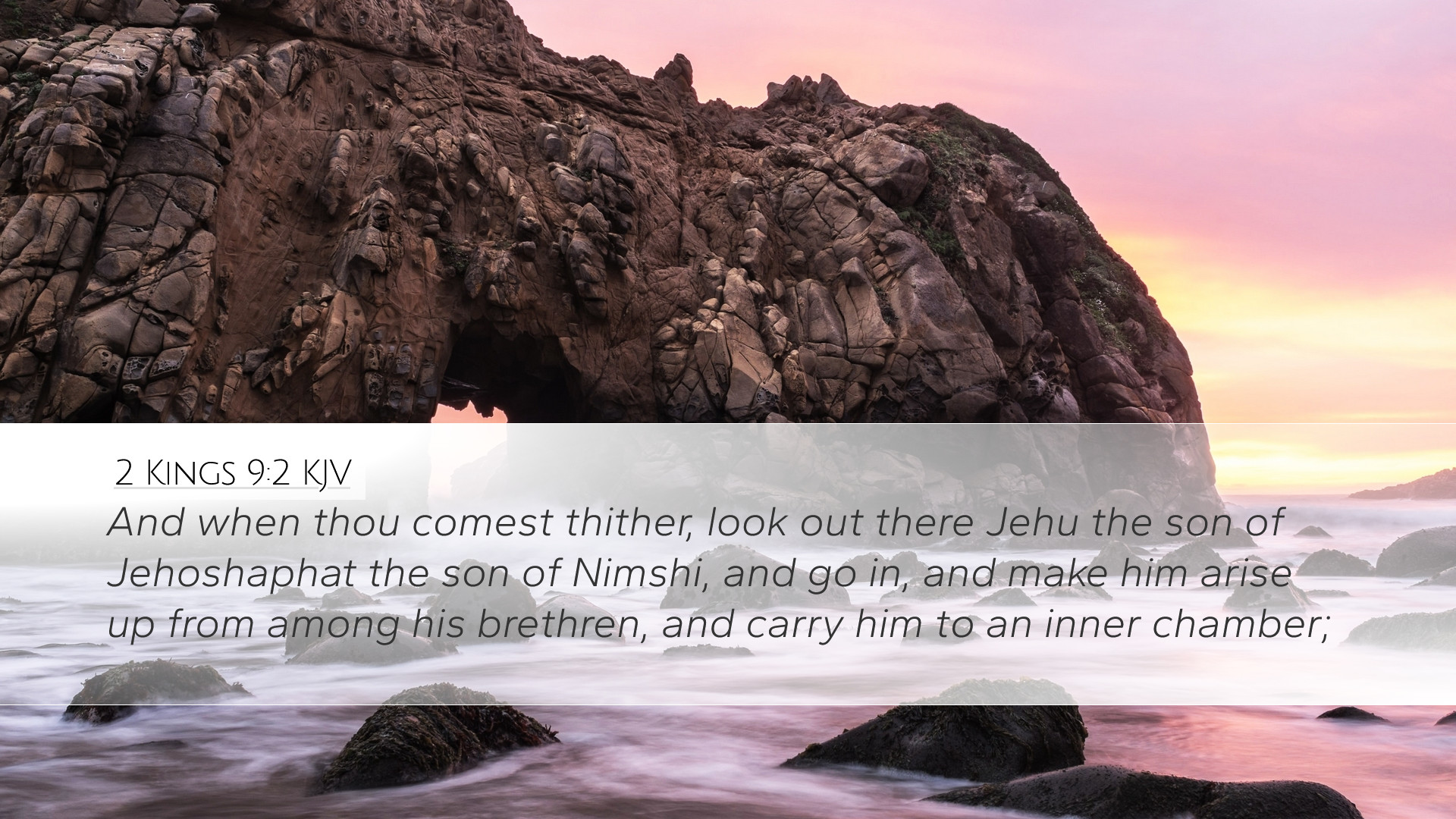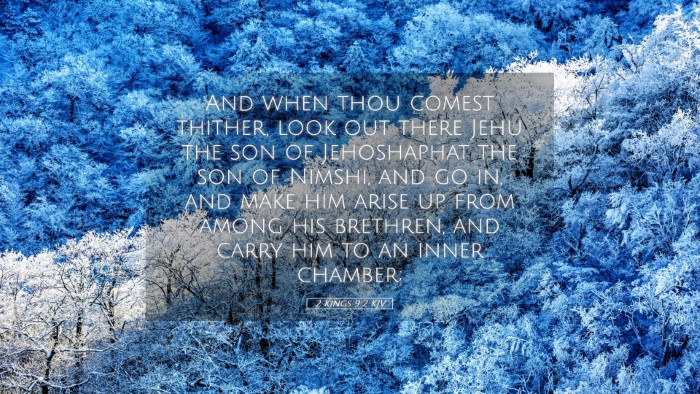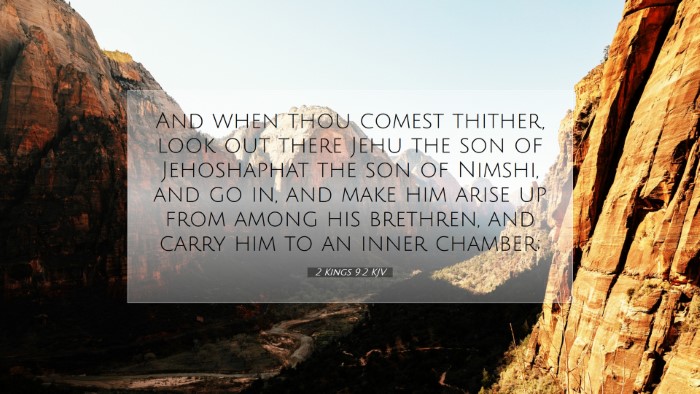Commentary on 2 Kings 9:2
Verse: "And when you arrive there, look for Jehu the son of Jehoshaphat, the son of Nimshi. Go in and have him rise up from among his brothers, and take him to an inner room."
Introduction
The verse in focus, 2 Kings 9:2, marks a pivotal moment in the narrative of the Old Testament, wherein God initiates a significant change in leadership to purge Israel of the idolatry and wickedness that had taken root under the reign of Ahab and Jezebel. This commentary gathers insights from Matthew Henry, Albert Barnes, and Adam Clarke, presenting a comprehensive analysis that caters to the needs of pastors, scholars, and students.
Contextual Background
Historical Setting: During this period, Israel was experiencing deep spiritual and moral decay, heavily influenced by Ahab's and Jezebel's reign. The rise of Jehu, appointed through prophetic unction, symbolizes a divine intervention to restore covenant faithfulness.
Leadership Transition: This passage is part of a broader transition within the house of Israel and reflects God's sovereignty in political matters, showing that He raises and deposes leaders according to His divine purpose.
Exegesis of 2 Kings 9:2
Jehu's Identification: The command to find Jehu the son of Jehoshaphat indicates a deliberate choice by God, as He selects a leader from within the ranks of His people who was suited for the task ahead. Matthew Henry emphasizes that Jehu was a man of zeal, selected to execute God’s judgement on apostasy.
- Jehu's Lineage: Identifying Jehu as “the son of Jehoshaphat, the son of Nimshi” highlights his royal lineage, but more importantly, it indicates his connection to the previous godly line that had established reforms in Judah.
- Symbolism of 'Inner Room': The request to take him to an 'inner room' signifies the gravity and secrecy required in the task assigned to him. This indicates a divine calling that necessitates careful preparation and zeal.
Theological Implications
From this verse, we observe profound theological themes worthy of exploration.
- Divine Sovereignty: The act of anointing Jehu illustrates God's direct involvement in the affairs of nations and leaders. Albert Barnes states that God's providence orchestrates the rise and fall of nations, emphasizing that He does not leave these matters to chance.
- Judgment and Mercy: While the impending judgment upon Ahab’s house is severe, it also underscores God's mercy towards the faithful remnant in Israel. Through Jehu, God intends to purify His people from idolatry.
- Preparedness for Action: The summons to rise and leave his brothers reflects a call to action that often requires decisiveness and separation from complacency. Adam Clarke notes that God often prepares His chosen servants through calling them to a higher purpose.
Commentary Insights
Matthew Henry's Perspective: Henry posits that this anointing is a clear illustration of God directly intervening in human affairs. He comments on the significance of Jehu’s task and the necessity for bold leadership to confront the evils of the nation.
Albert Barnes' Views: Barnes highlights the urgency and seriousness of the prophetic mission given to the young prophet. He draws attention to God's clear instructions and the importance of obedience in executing divine commands, which is crucial for all leaders today.
Adam Clarke's Analysis: Clarke reflects on the socio-political implications of Jehu's anointing. He suggests that Jehu would represent a dramatic shift in Israel’s trajectory and states that this divine appointment underscores the need for righteous leadership.
Practical Applications
For pastors, students, and theologians, the lessons drawn from 2 Kings 9:2 can be applied in various contexts:
- Leadership Formation: The church must recognize God’s call to righteous leadership and the importance of creating a generation of leaders prepared to uphold truth and confront destructive ideologies.
- Spiritual Zeal: Just as Jehu was a man of fervor, modern Christians are called to embody zeal for the Lord, undertaking personal and communal challenges against spiritual complacency.
- Divine Commissioning: Understanding that God equips and calls individuals for specific missions encourages believers to seek His will and respond to His calling in faith and readiness.
Conclusion
2 Kings 9:2 serves as more than a historical account; it is an enduring reminder of God's sovereignty, the seriousness of leadership under His guidance, and the call for believers to respond to His commissioning. By reflecting on the insights from noted commentators, we can deepen our understanding of this rich text, drawing relevant lessons for ministry and personal faith journeys.


